|
2 Comments
No Unemployment Law Decisions Issued by the Minnesota Court of Appeals on Monday, September 3, 2014.11/5/2014 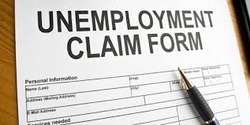 There were no decisions on unemployment benefits issued by the Minnesota Court of Appeals on Monday, November 3, 2014. This is unusual, because typically there is at least one decision on unemployment benefits, but not this week. For this reason, there is nothing to summarize, and the weekly summary is taking a break. I'll post next week's summary on or about Monday, November 10, 2014. Thanks! October 27, 2014 Summary of Decisions on Unemployment Benefits From the Minnesota Court of Appeals10/27/2014 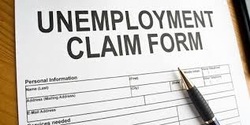 There were three decisions on unemployment benefits from the Minnesota Court of Appeals this week, including one where I represented the applicant. That case is noteworthy because it deals with a challenge to the constitutionality of the reconsideration statute. The second is a fairly typical misconduct case -- not showing up for work when you are scheduled is misconduct. The third is noteworthy because the judge's determination of whether the applicant had earned enough in the previous benefit year to establish a benefit account was remanded -- or sent back to the department -- for further factfinding. 1. A14-0159, Pamela Beidel, Relator, vs. Corporate Commission of Mille Lacs Band of Ojibwe Indians - Grand Casino Hinckley, Respondent, Department of Employment and Economic Development,Respondent. Summary: Relator challenges the unemployment-law judge’s (ULJ) decision that she was discharged for employment misconduct and ineligible for unemployment benefits, arguing that she did not engage in misconduct and that a portion of the Minnesota Unemployment Insurance Law is unconstitutional. More specifically, Relator argued that the portion of the reconsideration statute requiring the same unemployment law judge who presided over the evidentiary hearing where benefits were denied is unconstitutional. We affirm the ULJ’s decision and conclude that relator’s constitutional challenge fails 2. A14-0230, Mark M. Lazo, Relator, vs. Moguls F & B LLC, Respondent, Department of Employment and Economic Development, Respondent. Summary: Relator Mark M. Lazo challenges an unemployment-law judge’s (ULJ) determination that he is ineligible for unemployment benefits because he was discharged for employment misconduct after he failed to report to work on two occasions. Lazo argued that he was not scheduled to work on those dates, but the Appeals Court affirmed the determination of ineligibility. 3. A14-0228, Chaquita Broadway,Relator, vs.Minnesota State Agricultural Society-Minnesota State Fair, Respondent, Island Therapeutic Massage Wellness Center, Respondent, Department of Employment and Economic Development, Respondent. Summary: In this certiorari appeal, relator argues that the unemployment-law judge (ULJ) erred by concluding that she did not meet the minimum requirements to establish an unemployment-benefit account. As the Appeal Court stated, Credibility was central to the ULJ’s decision because Broadway’s testimony was the only evidence that she received an additional $550 in wages. Because the ULJ’s decision not to credit Broadway’s testimony had a significant effect on the outcome, the ULJ was required to provide her reason for discrediting that testimony. See Minn. Stat. 268.105, subd 1a(a).; Wichmann v. Travalia, 729 N.W.2d 23, 29 (Minn. App. 2007). Because the ULJ failed to do so, we remand for the ULJ to make additional findings. If you are denied unemployment benefits, or are an employer who wants to challenge a former employee's eligibility for benefits, your best bet is to meet with an attorney who handles unemployment appeals to discuss your options. To that end, I represent both applicants and employers in unemployment appeals. Please call (763) 450-9494 today to set up an appointment to discuss your situation. WARNING: The information contained in this blog post does not constitute legal advice and may not be applicable to your situation. Reading this blog post does not create an attorney-client relationship between you and Baland Law Office, P.L.L.C. Also, Tim is licensed only in state and federal courts in Minnesota. As such, any information provided in this blog post pertains only to those jurisdictions. Further, you should always discuss your situation with an attorney before taking any action based on what you may read in this blog. To that end, please call (763) 450-9494 to set up an appointment to discuss your situation. October 20, 2014 Summary of Decisions on Unemployment Benefits From Minnesota Court of Appeals10/22/2014 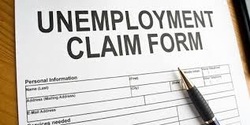 This week there were four decisions on unemployment benefits issued by the Minnesota Court of Appeals. The first is noteworthy because it is an appeal by the employer involving the interesting question of whether a person is an employee or independent contractor. The second is curious because, although the case involves issues of employment misconduct, one of the three judges on the Court of Appeals panel that heard the case dissented. The third case stresses the importance of filing a timely appeal of an unfavorable determination. The fourth case is a fairly unremarkable employment misconduct case. Summary: 1. A13-2345, Monica Peterson, Respondent vs. A-Z Friendly Languages, Inc., Relator, Department of Employment and Economic Development, Respondent. This appeal concerns whether an unemployment law judge correctly held that an agency that provides interpreter services is obligated to cover its former interpreters as “employees” eligible to receive unemployment benefits. A-Z Friendly Languages, Inc., challenges an unemployment law judge’s determination that one of its interpreters and all similarly situated workers are employees rather than independent contractors. We hold that the circumstances demonstrate that interpreter Monica Peterson worked only as an independent contractor. Even if this were not so, the unemployment law judge lacked a sufficient factual basis to extend his ruling to characterize all similar workers as employees. We reverse. 2. A14-0226, Mario Vasquez, Relator, vs. Safe-Way Bus Co., Respondent, Department of Employment and Economic Development, Respondent. Relator challenges an unemployment-law judge’s decision that he is ineligible for unemployment benefits because he was discharged for employment misconduct. The ULJ found that Relator had "used" his cell phone while driving a bus by turning the ringer on silent, thereby committing employment misconduct. The Court of Appeals affirmed the decision, but the dissent wrote that: I respectfully dissent because I believe the majority misinterprets an employer’s suggestion as a directive, thereby engaging in inappropriate fact-finding and undermining the remedial purpose of the unemployment-benefits statute. 3. A14-0153, Jagjewan Tamaldeo, Relator, vs. Marsden Building Maintenance LLC, Respondent, Department of Employment and Economic Development,Respondent. Relator Jagjewan Tamaldeo seeks review of the decision by an unemployment law judge (ULJ) affirming the dismissal of his appeal of an ineligibility determination as untimely. In this case, Relator filed his appeal one day late, but the law is clear that A determination of ineligibility is final unless the applicant files an appeal within 20 calendar days after the determination is sent to the applicant. Minn. Stat. § 268.101, subd. 2(f) (2012). “An untimely appeal from a determination must be dismissed for lack of jurisdiction.” Stassen v. Lone Mountain Truck Leasing, LLC, 814 N.W.2d 25, 29(Minn. App. 2012). “There is no equitable or common law denial or allowance of unemployment benefits.” Minn. Stat. § 268.069, subd. 3 (2012). For all of these reasons, the Appeals Court affirmed the decision. 4. A14-0391, Ali Jama, Relator, vs. Marsden Building Maintenance LLC, Respondent, Department of Employment and Economic Development, Respondent. We affirm the decision of the unemployment-law judge (ULJ) that relator committed employment misconduct by failing to complete an assigned task because the ULJ’s findings are substantially supported by the record and because the ULJ conducted a fair hearing. If you are denied unemployment benefits, or are an employer who wants to challenge a former employee's eligibility for benefits, your best bet is to meet with an attorney who handles unemployment appeals to discuss your options. To that end, I represent both applicants and employers in unemployment appeals. Please call (763) 450-9494 today to set up an appointment to discuss your situation. WARNING: The information contained in this blog post does not constitute legal advice and may not be applicable to your situation. Reading this blog post does not create an attorney-client relationship between you and Baland Law Office, P.L.L.C. Also, Tim is licensed only in state and federal courts in Minnesota. As such, any information provided in this blog post pertains only to those jurisdictions. Further, you should always discuss your situation with an attorney before taking any action based on what you may read in this blog. To that end, please call (763) 450-9494 to set up an appointment to discuss your situation. 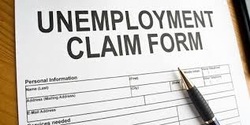 This week there were two unpublished opinions from the Minnesota Court of Appeals related to unemployment benefits. The relator in the first case challenges the ULJ’s determination of her ineligibility to collect unemployment benefits based on the fact that her appeal was untimely. The appeal by the relator in the second case one see many times – the ULJ’s decision that she is ineligible to receive unemployment benefits because of employee misconduct. Both cases were affirmed. 1. A14-0225 Diane Quick, Relator, vs. Polar Semiconductor, Inc., Respondent, Department of Employment and Economic Development, Respondent. Summary: On certiorari review from an unemployment-law judge’s (ULJ’s) decision dismissing relator’s appeal as untimely, relator argues that (1) her appeal from a determination of ineligibility based on her reason for quitting was not untimely because the Department of Employment and Economic Development (DEED) had not yet ruled on the companion issue of whether she was able to work and was actively seeking work; (2) her submission of responses to questions before the appeal deadline constituted an appeal under Minn. Stat. § 268.103, subd. 2(b) (2012); and (3) DEED sent relator documents containing erroneous information that led her to believe she no longer needed to appeal from the determination of ineligibility Here are the three responses from the Court in regard to relator’s three argumentative issues above: (1) Minn. Stat. § 268.095, subd. 1(7), states that the ineligibility exception for quitting employment for medical necessity “raises an issue of the applicant’s being available for suitable employment under section 268.085, subdivision 1, that the commissioner must determine.” But nothing in this section states that both issues must be resolved together or that the statutory appeal time limit is tolled until the issue of availability for work is resolved. We note that ineligibility issues may arise at different times. Therefore, we conclude that DEED was not required to issue a unitary determination on all issues related to relator’s eligibility for unemployment benefits. (2) Relator also contends that the act itself of responding to DEED’s request for information showed that relator believed herself to be entitled to benefits. But DEED asserts that relator’s responses in no way address the issue of whether she quit for personal or medical reasons. We agree. We conclude that the October 7 statement cannot reasonably be interpreted as an appeal of the September 24 determination of ineligibility. (3) We agree with relator that the notifications she received from DEED indicating the presence or absence of “pending” issues related to her eligibility for benefits were confusing, but we conclude that the statements were not so misleading that the burden of the misunderstanding should be borne by DEED. Relator did not fully follow DEED’s appeal instructions where her determination of ineligibility letter clearly stated that the determination would be final on October 14, 2013, and relator did not appeal the determination until October 16, 2013. Relator was determined ineligible for benefits on two separate bases, either one of which would result in her inability to receive benefits. Although the Court affirmed the ULJ’s decision, I found the last paragraph of the Court’s decision interesting, noting, DEED’s “ . . . lack of clarity with which it communicates with applicants for benefits. . . Deed should carefully consider how and what it communicates with applicants for benefits so as to fulfill its purpose as stated in law.” 2. A14-0233 Deborah Brakefield, Relator, vs. IND. School District #2889, Respondent, Department of Employment and Economic Development, Respondent. Summary: Relator challenges the decision by an unemployment law judge (ULJ) that she was discharged for employment misconduct and is ineligible for unemployment benefits, arguing that the ULJ improperly relied on hearsay and improperly interpreted other evidence; that she was prejudiced because certain evidence was not available; and that she had been subjected to discrimination and a hostile environment. Because substantial evidence supports the ULJ’s decision, relator received a fair hearing, and she did not raise claims of discrimination or a hostile work environment to the ULJ, we affirm This week there was also an Order Opinion released. Cases that involve a few simple issues may be decided by order opinions, which include little discussion of the facts of the case and a brief analysis of the laws that are involved. This Order Opinion merits attention because DEED conceded that it erred in determining whether Relator was eligible for unemployment benefits. Still, the Order Opinion does not say how the ULJ erred. 3. A14-0654 Vernon E. Wallace, Relator, vs. Metro Center for Independent Living, Inc., Respondent, Department of Employment and Economic Development, Respondent. Reversed and remanded. Summary: In this petition for certiorari review, relator Vernon E. Wallace challenges the March 14, 2014 decision by an unemployment law judge (ULJ), in which the ULJ affirmed his initial decision that relator is ineligible for unemployment benefits because he was discharged for employment misconduct. Relator asks this court to reverse or, in the alternative, to reverse and remand for an additional hearing. Respondent Minnesota Department of Employment and Economic Development (DEED) filed a letter in lieu of a respondent's brief, conceding that the ULJ erred and asking this court to reverse and remand with instructions for the ULJ to hold another hearing and consider additional evidence. Accordingly, the case was reversed and remanded. If you are denied unemployment benefits, or are an employer who wants to challenge a former employee's eligibility for benefits, your best bet is to meet with an attorney who handles unemployment appeals to discuss your options. To that end, I represent both applicants and employers in unemployment appeals. Please call (763) 450-9494 today to set up an appointment to discuss your situation. WARNING: The information contained in this blog post does not constitute legal advice and may not be applicable to your situation. Reading this blog post does not create an attorney-client relationship between you and Baland Law Office, P.L.L.C. Also, Tim is licensed only in state and federal courts in Minnesota. As such, any information provided in this blog post pertains only to those jurisdictions. Further, you should always discuss your situation with an attorney before taking any action based on what you may read in this blog. To that end, please call (763) 450-9494 to set up an appointment to discuss your situation.  There were three decisions -- actually, one decision and two orders -- issued by the Minnesota Supreme Court today, Wednesday 10/8/14. The decision, involving the appeal of a admonition, reversed the discipline and vacated the admonition. The orders involved a petition for reinstatement and a stipulated public reprimand. A13-1856, In re Petition for Disciplinary Action Against A.B., a Minnesota Attorney, Panel Case No. 35121. Summary: The Director of the Office of Lawyers Professional Responsibility issued an admonition to A.B. based on his failure to appear at several court hearings in a marital-dissolution case and becauuse he did not inform the district court that he had a limited-scope agreement with his client that excluded court hearings. A panel of the Lawyers Professional Responsibility Board affirmed the admonition, concluding that A.B.’s conduct violated Minn. R. Prof. Conduct 8.4(d). Because the panel’s decision was clearly erroneous, Minnesota Supreme Court reversed the Board’s decision and vacated the admonition. However, in a footnote, the Court cautioned that vacating an admonition did not mean that "an attorney’s failure to attend a court hearing can never result in discipline," and cited an array of cases as proof. A13-1548, In re Petition for Disciplinary Action against Willie Herman Davis, Jr., a Minnesota Attorney, Registration No. 298384. Summary: By order filed on May 8, 2014, the Minnesota Supreme Court suspended respondent Willie Herman Davis, Jr., from the practice of law for a minimum of 120 days, effective 14 days from the date of the filing of the order. Respondent has filed an affidavit seeking reinstatement in which he states that he has complied with the conditions for reinstatement imposed by the court. Respondent's affidavit does not state that respondent has successfully completed the professional responsibility portion of the state bar examination, nor has respondent filed with the Clerk of Appellate Courts proof that he has successfully completed the professional responsibility portion of the state bar examination. The Director of the Office of Lawyers Professional Responsibility does not oppose the request For all of these reasons, the Court conditionally reinstated respondent's license to practice law. The conditions include being on disciplinary probation for 7 years and completing the professional responsibility portion of the bar examination. A14-1551, In re Petition for Disciplinary Action against Timothy Joseph Klima, a Minnesota Attorney, Registration No. 202885. Summary: The Director of the Office of Lawyers Professional Responsibility has filed a petition for disciplinary action seeking reciprocal discipline under Rule 12(d), Rules on Lawyers Professional Responsibility (RLPR), based on a decision of the Iowa Supreme Court publicly reprimanding respondent Timothy Joseph Klima. See Iowa Supreme Court Attorney Disciplinary Bd. v. Klima, No. 13-1815, Order (Iowa filed Jan. 3, 2014). The Iowa public reprimand was based on respondent assisting another lawyer in his firm in violating the Iowa Rules of Professional Conduct by helping him draft a will in which respondent received a substantial gift and failing to explain to the client the conflict inherent in including such a gift in a will drafted by a member of respondent's firm, the implications of the gift, and the need for independent counsel, in violation of Rules 32:1.4(a)(2) and (b) and 32:8.4(a) of the Iowa Rules of Professional Conduct. The Director and respondent have entered into a stipulation in which respondent admits the allegations in the petition for disciplinary action and waives his rights under Rule 12(d), RLPR. The parties jointly recommend that the appropriate discipline is a public reprimand, so the Minnesota Supreme Court publicly reprimanded Respondent. Tim represents attorneys facing professional discipline, and consults with attorneys about whether a particular situation or proposed course of conduct implicates the Rules of Professional Conduct. When faced with a situation that may implicate the Rules of Professional Conduct, Tim always recommends that an attorney seek an advisory opinion from the Office of Lawyers Professional Responsibility. WARNING: The information contained in this blog post does not constitute legal advice and may not be applicable to your situation. Reading this blog post does not create an attorney-client relationship between you and Baland Law Office, P.L.L.C. Also, Tim is licensed only in state and federal courts in Minnesota. As such, any information provided in this blog post pertains only to those jurisdictions. Further, you should always discuss your situation with an attorney before taking any action based on what you may read in this blog. To that end, please call (763) 450-9494 to set up an appointment to discuss your situation. October 6, 2014 Summary of Decision on Unemployment Benefits From Minnesota Court of Appeals10/7/2014 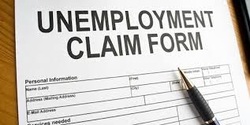 There was only one decision on unemployment benefits this week from the Minnesota Court of Appeals. The decision was released on October 6, 2014. The case is a good illustration that an applicant for unemployment benefits who quits employment must have a good reason to quit caused by the employer, but is noteworthy because this is the third time that the case has been before the Appeals Court. A14-0371, Lennis Bentrud, Relator, vs. Robin Drug Corp., Respondent, Department of Employment and Economic Development, Respondent. Summary: On certiorari appeal from a determination by an unemployment law judge (ULJ) that relator is ineligible for unemployment benefits, relator argues that the ULJ erred by determining that she quit employment without good reason caused by the employer. Relator argued that she quit because of physical harassment and intimidation directed at her by her supervisor, but the ULJ ultimately determined that Bentrud quit because her supervisor altered her timecard, with the result that she was paid for time off instead of having to take time off without pay. The Appeals Court concluded "that a reasonable, average worker would not quit employment in favor of unemployment where the alteration to her timecard resulted in her receiving more pay than anticipated." For these reasons, the Court of Appeals affirmed the ULJ's decision that relator was ineligible to receive unemployment benefits. If you are denied unemployment benefits, or are an employer who wants to challenge a former employee's eligibility for benefits, your best bet is to meet with an attorney who handles unemployment appeals to discuss your options. To that end, I represent both applicants and employers in unemployment appeals. Please call (763) 450-9494 today to set up an appointment to discuss your situation. WARNING: The information contained in this blog post does not constitute legal advice and may not be applicable to your situation. Reading this blog post does not create an attorney-client relationship between you and Baland Law Office, P.L.L.C. Also, Tim is licensed only in state and federal courts in Minnesota. As such, any information provided in this blog post pertains only to those jurisdictions. Further, you should always discuss your situation with an attorney before taking any action based on what you may read in this blog. To that end, please call (763) 450-9494 to set up an appointment to discuss your situation. 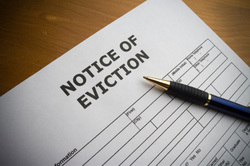 Tim is teaching a FREE seminar on Landlord-Tenant Law, including evictions, security deposits, and abandoned tenant property. The seminar will be held on Friday 10/24/2014 at Tim's office, 2140-4th Avenue, Anoka MN 55303. This seminar is geared for landlords, property managers, and attorneys who represent them, but is also applicable for tenants, tenant-rights' organizations, and tenant attorneys. Space is limited, so advance registration is required. To register, please visit https://www.eventbrite.com/e/brown-bag-seminar-evictions-security-deposits-abandoned-tenant-property-and-landlord-tenant-law-tickets-13564843813 ATTORNEYS: One standard CLE credit has been applied for. September 29, 2014 Summary of Decisions on Unemployment Benefits From the Minnesota Court of Appeals10/2/2014 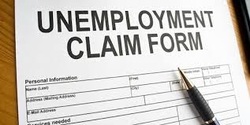 Although there were only two unpublished opinions this week, both were reversed and one was also remanded. In the first case, the Relator is found ineligible for benefits due to employee misconduct. The Appeals Court reversed the decision, without remanding it back to the Department of Employment and Economic Development. The second case (which was reversed and remanded) relates to the Relator’s ineligibility for quitting without good reason attributable to his employer. 1. A13-2346 Richard Hammerstad, Relator, vs. Princeton Auto Center, Inc., Respondent, Department of Employment and Economic Development, Respondent. Summary: Relator challenges an unemployment-law judge’s decision that he is ineligible for unemployment benefits due to employment misconduct. Princeton Auto Center (the employer) claimed that the employee did not have a valid driver’s license due to a recent DUI and is therefore not able to drive vehicles and perform his duties as described at time of hire. During the hearing, the ULJ asked Princeton whether a license was a requirement of Hammerstad’s job, and Princeton responded, “Yes. Mr. Hammerstad was a service technician and driving vehicles is a required part of the job due to diagnosis and other facets of vehicle repair.” Princeton acknowledged that, when it hired Hammerstad, it knew that Hammerstad did not have a driver’s license. Hammerstad argues that his lack of a valid driver’s license did not constitute employment misconduct. Under the circumstances in this case, we agree, and reverse. 2. A14-0050 Benson Giwa, Relator, vs. Wal-Mart Associates, Inc., Respondent, Department of Employment and Economic Development, Respondent. Summary: Relator challenges the determination of the unemployment-law judge (ULJ) that he is ineligible to receive unemployment benefits because he quit his employment without good reason attributable to his employer. Giwa asserted two separate bases for quitting his job: (1) he was subjected to harassment by coworkers; and (2) Wal-Mart breached its agreement to schedule Giwa to work four days each week. Giwa claimed that from 2004 to 2013 he was subjected to racial slurs and harassment by department managers. During these years, Giwa made numerous complaints about the harassment and racial slurs to various managers, but nothing was ever done about it. Finally, March 2012, Giwa complained to the Minnesota Department of Human Rights (MDHR), who then recommended mediation for Giwa and Wal-Mart. However, Wal-Mart representatives failed to show up at any of the three scheduled mediation appointments. Wal-Mart then began to schedule Giwa to only one day of work instead of his usual four days. The ULJ characterized Wal-Mart’s scheduling of Giwa as a “simple mistake” and determined that “a single week of reduced hours would not compel the average, reasonable worker to quit and become unemployed.” The Court stated, “We cannot determine the legal issue of whether Giwa’s reason for quitting amounted to ‘good cause’ because ULJ’s factual findings are not ‘substantially sustain[ed]’ by the evidence in the record.” For this reason, the Court of Appeals reversed and remanded. If you are denied unemployment benefits, or are an employer who wants to challenge a former employee's eligibility for benefits, your best bet is to meet with an attorney who handles unemployment appeals to discuss your options. To that end, I represent both applicants and employers in unemployment appeals. Please call (763) 450-9494 today to set up an appointment to discuss your situation. WARNING: The information contained in this blog post does not constitute legal advice and may not be applicable to your situation. Reading this blog post does not create an attorney-client relationship between you and Baland Law Office, P.L.L.C. Also, Tim is licensed only in state and federal courts in Minnesota. As such, any information provided in this blog post pertains only to those jurisdictions. Further, you should always discuss your situation with an attorney before taking any action based on what you may read in this blog. To that end, please call (763) 450-9494 to set up an appointment to discuss your situation. September 22, 2014 Summary of Decisions on Unemployment Benefits From the Minnesota Court of Appeals9/24/2014 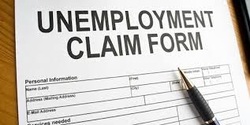 This week there were two unemployment unpublished decisions from the Minnesota Court of Appeals. The first case is quite interesting because it is in regard to whether or not performers and professional staff members are considered employees or independent contractors if hired on a short-term basis, which is the reason Relator Skylark Opera challenges the ULJ’s decision that these persons are employees. The Court reversed this decision. The second case involves the Relator challenging her ineligibility to collect unemployment benefits because she quit her job. This case was affirmed by the Court. A13-2343 Skylark Opera, Relator, vs. Department of Employment and Economic Development, Respondent. Summary: Relator Skylark Opera challenges a final decision by a ULJ determining that performers and professional staff members that they hire on a short-term basis for a handful of annual productions are employees rather than individual contractors, and for this reason that wages paid to these persons are taxable under the unemployment-insurance laws. The Appeals Court held because Skylark Opera hires persons on a short-term basis for only four performances, that the workers were hired as independent contractors. Because the persons hired by Skylark Opera are independent contractors, we reverse. A14-0054 Wendy Bronstad, Relator, vs. The House of Hope, Inc., Respondent, Department of Employment and Economic Development, Respondent. Summary: Relator Wendy Bronstad applied for unemployment benefits, but the Department of Employment and Economic Development determined that she is ineligible because she quit her employment without a good reason caused by her employer. Bronstad filed an administrative appeal, and the unemployment-law judge (ULJ) upheld the ineligibility determination and affirmed this decision after Bronstad requested reconsideration. TheAppeals Court concluded that because Bronstad’s reason for quitting was due to a demotion based on unsatisfactory job performance, substantial evidence supports the ULJ’s finding that the circumstances that caused her to quit would not cause an average, reasonable worker to quit. The ULJ did not err in upholding the determination of ineligibility. Affirmed. If you are denied unemployment benefits, or are an employer who wants to challenge a former employee's eligibility for benefits, your best bet is to meet with an attorney who handles unemployment appeals to discuss your options. To that end, I represent both applicants and employers in unemployment appeals. Please call (763) 450-9494 today to set up an appointment to discuss your situation. WARNING: The information contained in this blog post does not constitute legal advice and may not be applicable to your situation. Reading this blog post does not create an attorney-client relationship between you and Baland Law Office, P.L.L.C. Also, Tim is licensed only in state and federal courts in Minnesota. As such, any information provided in this blog post pertains only to those jurisdictions. Further, you should always discuss your situation with an attorney before taking any action based on what you may read in this blog. To that end, please call (763) 450-9494 to set up an appointment to discuss your situation. |
AuthorTimothy H. Baland, Esq. Categories
All
|
 RSS Feed
RSS Feed